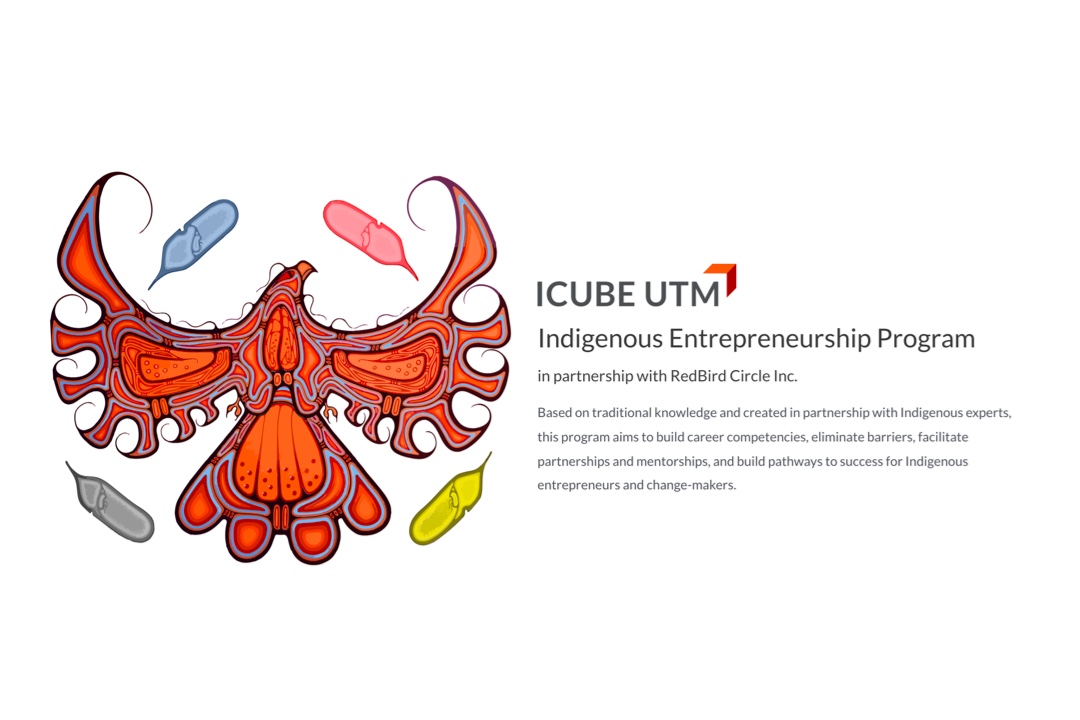Earlier this year, UTM’s entrepreneurship hub, ICUBE, partnered with Redbird Circle Inc. to launch the Indigenous Entrepreneurship Program — a 16-week initiative focused on eliminating barriers and facilitating mentorships for Indigenous entrepreneurs and leaders.
The program, which ran from March through June 2021, gathered participants from across Canada to cooperatively find entrepreneurial solutions to promote sustainable food systems and clean living. The theme was chosen with the help of community feedback and in light of the food insecurity crisis in Indigenous households, which is a severe problem that affects most communities in the country.
The Varsity sat down with the founders of Redbird Circle Inc., Jonathon Araujo Redbird and Christina Tachtampa, to learn about the Indigenous Entrepreneurship Program.
An innovative framework
The program was based on the Redbird Circle Framework, which was developed by Redbird and Tachtampa and built around the Anishinaabe medicine wheel. The program began with a focus on the personal well-being of the entrepreneurs themselves and community building, and later transitioned into skills development and business operations.
Redbird emphasized the importance of Indigenous entrepreneurs focusing on the individual first. “Many Indigenous people are still suffering from residential schools… and the racism and oppression that has occured in this country not even long ago,” he said. “So we had to start with healing the self before putting another layer on top of us.”
“It’s a very different approach to teaching entrepreneurship, and it’s very well received in the Indigenous space,” said Tachtampa.
The takeaways
One major challenge participants faced in their entrepreneurial journey was learning to work together with multiple time zones on an online platform. However, online learning also represented an opportunity for Indigenous entrepreneurs to connect while living in different places.
According to Tachtampa, since Indigenous communities are located all over Canada, they can benefit from the virtual space to come together to share resources, skills, and the difficulties of owning a business.
Another major struggle some participants encountered was related to the very issue they came together to solve. Four participants had to leave the program because of issues related to food insecurity. To Redbird, this highlights the severity of the health concerns that Indigenous peoples are facing in Canada today.
One of the participants was Isaiah Gilson, a multimedia storyteller, who wants to start a farm with the purpose of providing clean food. “Going into the Indigenous Entrepreneurship Program was like prayers answered, because that’s something that I prayed for, to have a supportive space that identifies my needs and wants as an Indigneous person,” Gilson told The Varsity.
Opportunities for the future
There are many opportunities in the Indigenous entrepreneurship space. However, as Indigenous entrepreneurs are often in business because of social or environmental motivation, rather than for profit reasons, they struggle to obtain access to institutions that offer financing to new entrepreneurs.
Gilson commented on the importance of partnering with institutions like ICUBE that are true allies. “It’s very important that [the program] is Indigenous-led,” he said. “It’s really important that U of T is doing this… [to] step back and just let us do our own thing… just with their support.”
The founders hope to continue the program next year. In the future, they plan to record the implementation of an Indigenous garden on campus and to continue instructing students across Canada in establishing food sovereignty businesses on the lands of postsecondary institutions.


